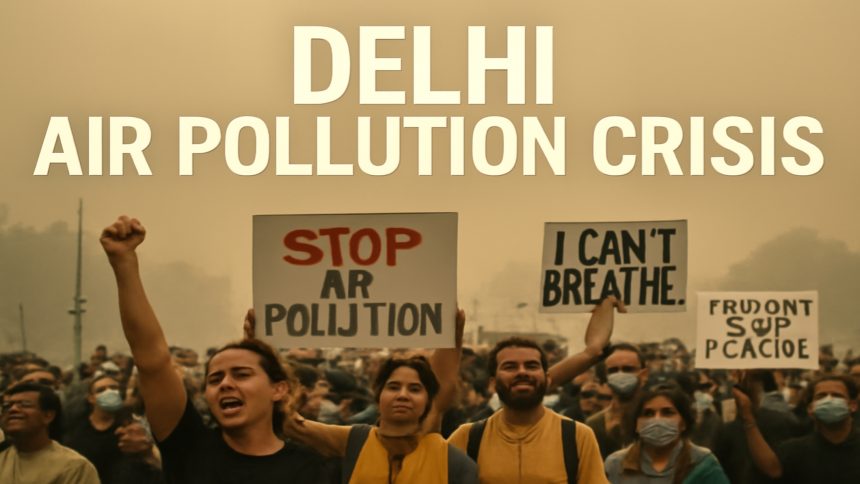By | Arvind Jadhav
Delhi – The national capital is grappling with an unprecedented air pollution crisis, which has triggered massive protests across the city. Over the past weeks, air quality levels have plummeted to hazardous levels, with the Air Quality Index (AQI) consistently reaching alarming numbers.
As toxic haze blankets Delhi, residents, environmentalists, and activists have taken to the streets, voicing their frustration over the government’s failure to address the worsening pollution problem. The protests have intensified, with many accusing local authorities of neglecting public health and environmental concerns.
The Scale of the Crisis
The pollution levels in Delhi have reached critical points, with fine particulate matter (PM2.5) soaring above 300 micrograms per cubic meter, significantly surpassing the safe limit. Experts warn that such levels pose severe risks to respiratory health, especially for children, the elderly, and those with pre-existing conditions.
Protest Movement Gains Momentum
What started as a small group of concerned citizens has now turned into a full-fledged movement. Protesters have gathered at various locations across the city, demanding more stringent policies on pollution control, stricter vehicle emission norms, and a rapid transition to renewable energy sources.
“Every breath we take is poisoned. We are not just fighting for cleaner air, but for our future,” said a prominent environmental activist during one of the protests.
Government’s Response
The Delhi government has acknowledged the crisis and pledged to introduce stricter measures, including a temporary shutdown of industries and construction activities. However, many citizens remain dissatisfied, believing that the government’s actions are too little, too late.
What Can Be Done?
Experts suggest a multi-pronged approach to tackle the pollution issue, including better waste management practices, reduction in vehicular emissions, and increased green cover in urban spaces. Only through sustained efforts can Delhi hope to combat its air pollution problem and secure a healthier future for its residents.






